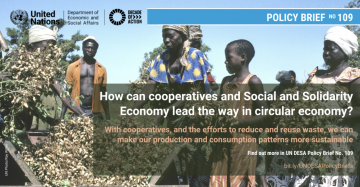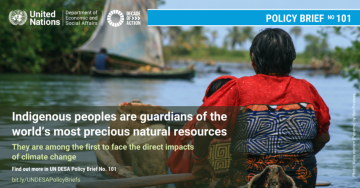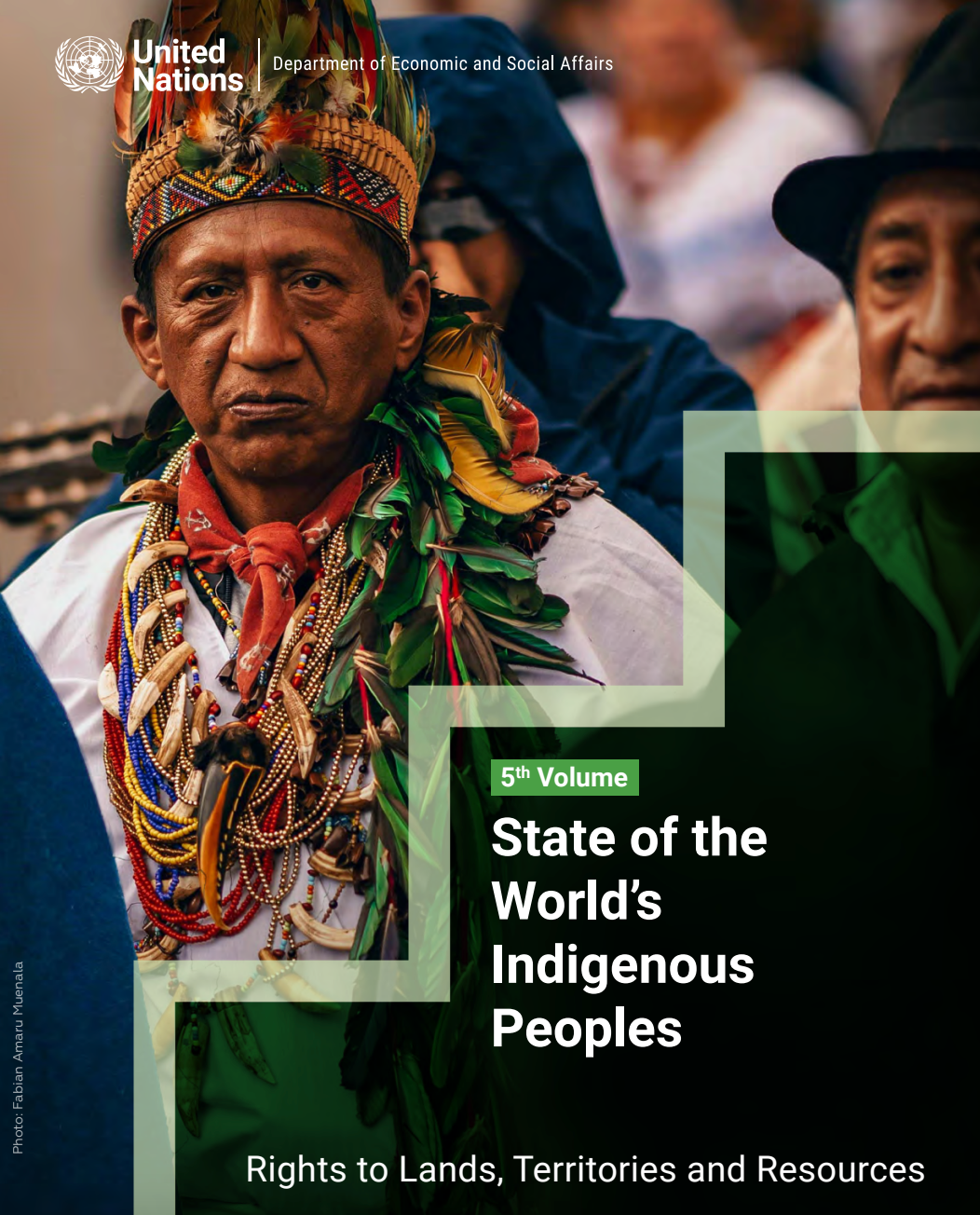Publications
Displaying 1 - 8 of 8
UN General Assembly Reports on Social Development |
Policy Briefs |
Introduction
In his report to the 59th Commission for Social Development on the priority theme of socially just transition towards sustainable development (E/CN.5/2021/3), the Secretary- General pointed out that “By adopting the 2030 Agenda, world leaders recognized that the current trajectory of economic development has not led to shared prosperity for all, but to high and rising inequalities in many countries, the climate crisis, and unsustainable consumption and production patterns. These consequences have taken a toll on social development and people’s well-being, especially among the most vulnerable.” The Report further analyzed the link between high inequality, consumerism…
Policy Briefs |
Threats to indigenous peoples’ livelihoods and traditional knowledge
Climate change is the greatest challenge facing humanity today. Its effects, however, are disproportionately distributed, in particular affecting vulnerable and socially marginalized population groups. Indigenous peoples are among the first to face the direct impacts of global warming on the ecosystems or landscapes they inhabit, owing also to their dependence upon, and close relationship with the environment and its resources. Examples of the negative impacts include diseases associated with increasing temperatures such as, vector-borne and water-borne diseases; drought and desertification leading to forest fires and the…
Flagship Reports |
Indigenous peoples’ relationship to their lands, territories and resources is at the heart of their identity, well-being and culture. Preservation of the environment, transmitted through traditional knowledge passed down through generations, is at the centre of their existence. As the world is increasingly recognizing the negative impacts of climate change and environmental degradation on health, food security and overall peace and security, the importance of indigenous knowledge and territorial rights is beginning to be more fully acknowledged by society at large.
The 2030 Agenda for Sustainable Development offers further opportunities to promote the rights of indigenous peoples to lands…
UN ECOSOC Reports on Social Development |
UN ECOSOC Reports on Social Development |
UN General Assembly Reports on Social Development |
The report contains a review of the actions taken by cooperatives to respond to the coronavirus disease (COVID-19) pandemic and the opportunities for achieving sustainable development through cooperatives. The thematic section of the report covers legislative frameworks, including how in successive resolutions on cooperatives in social development, including 74/119, the Assembly has called on Governments to adopt laws or regulations that create an enabling environment for the development of cooperatives and that take into account the values-based identity of cooperatives. In addition, in its resolution 64/136, the Assembly declared 2012 the International Year of Cooperatives, and in…
UN General Assembly Reports on Social Development |
The report provides an overview of the progress achieved in the implementation of the resolution, with a focus on mental health, climate change and biodiversity loss and global technological commons, in the context of rebuilding trust in multilateralism and advancing the common agenda. It was prepared based on input received from Member States, United Nations entities and youth organizations. It concludes with key recommendations for consideration by the Assembly.
 Welcome to the United Nations
Welcome to the United Nations


